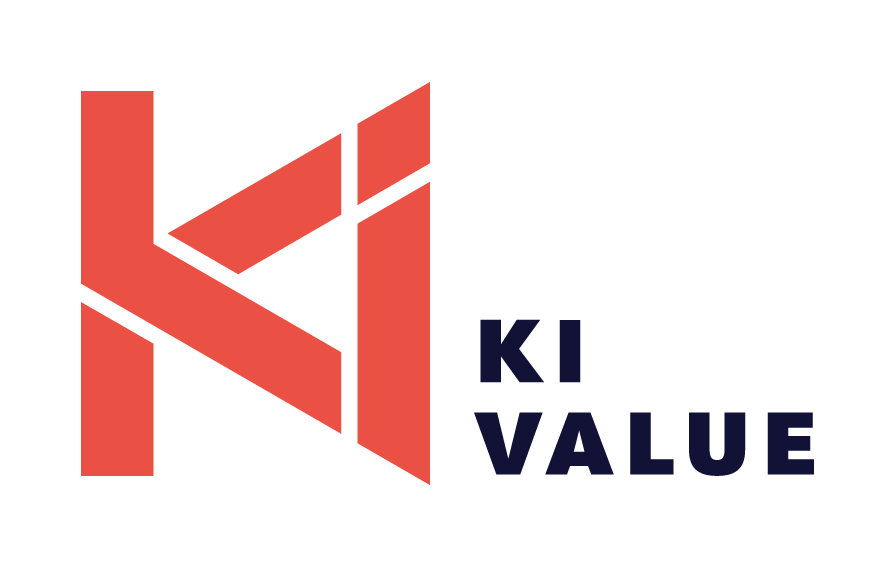To make KIVALUE work and improve your user experience, we log user data and employ essential cookies. By using KIVALUE website, you agree to our Privacy Policy, including cookie policy.
New Partnership with Pricen in Italy: Read Here
Sustainable Success // How Fair Trade Practices Boost Clothing Brands
Introduction
In recent years, the concept of fair trade has gained significant traction within the clothing industry.
As consumers become increasingly conscious of ethical and sustainable practices, brands that invest in fair trade practices can not only make a positive social impact but also improve their bottom line.
This article explores how fair trade practices can benefit clothing brands financially and strategically.
In recent years, the concept of fair trade has gained significant traction within the clothing industry.
As consumers become increasingly conscious of ethical and sustainable practices, brands that invest in fair trade practices can not only make a positive social impact but also improve their bottom line.
This article explores how fair trade practices can benefit clothing brands financially and strategically.
Understanding Fair Trade in the Clothing Industry
Fair trade in the clothing industry ensures that the producers and workers involved in the manufacturing process are paid fair wages and work under safe conditions. This ethical approach addresses several critical issues:
Fair trade in the clothing industry ensures that the producers and workers involved in the manufacturing process are paid fair wages and work under safe conditions. This ethical approach addresses several critical issues:
- Fair Wages: Ensures workers receive adequate compensation for their labour.
- Safe Working Conditions: Promotes health and safety standards in factories and workshops.
- Environmental Sustainability: Encourages eco-friendly practices and the use of sustainable materials.
Consumer Demand for Ethical Practices
Today’s consumers are more informed and conscious about the origins of their clothing. This shift towards ethical consumption is driven by several factors:
Today’s consumers are more informed and conscious about the origins of their clothing. This shift towards ethical consumption is driven by several factors:
- Awareness: Increased awareness of global labour practices and environmental issues.
- Transparency: A demand for transparency from brands about their supply chains and manufacturing processes.
- Value Alignment: Consumers prefer brands that align with their personal values regarding social and environmental responsibility.
Financial Benefits of Investing in Fair Trade
Investing in fair trade practices can lead to several financial benefits for clothing brands. These benefits include:
Increased Brand Loyalty
Consumers who value ethical practices are more likely to become loyal customers of brands that uphold these values. Brand loyalty can result in repeat purchases, positive word-of-mouth, and a strong customer base.
Premium Pricing
Fair trade clothing often justifies a higher price point due to the ethical and sustainable practices involved. Consumers are generally willing to pay more for products that they believe are produced responsibly, which can lead to increased profit margins.
Competitive Advantage
Brands that commit to fair trade practices can differentiate themselves in a crowded market. This differentiation can attract a niche market of consumers looking for ethical options, thereby enhancing the brand’s competitive edge.
Reduced Risk
Fair trade practices can help mitigate risks associated with labour violations and environmental damage. By adhering to fair trade standards, brands can avoid legal issues, boycotts, and negative publicity that can harm their reputation and financial standing.
Investing in fair trade practices can lead to several financial benefits for clothing brands. These benefits include:
Increased Brand Loyalty
Consumers who value ethical practices are more likely to become loyal customers of brands that uphold these values. Brand loyalty can result in repeat purchases, positive word-of-mouth, and a strong customer base.
Premium Pricing
Fair trade clothing often justifies a higher price point due to the ethical and sustainable practices involved. Consumers are generally willing to pay more for products that they believe are produced responsibly, which can lead to increased profit margins.
Competitive Advantage
Brands that commit to fair trade practices can differentiate themselves in a crowded market. This differentiation can attract a niche market of consumers looking for ethical options, thereby enhancing the brand’s competitive edge.
Reduced Risk
Fair trade practices can help mitigate risks associated with labour violations and environmental damage. By adhering to fair trade standards, brands can avoid legal issues, boycotts, and negative publicity that can harm their reputation and financial standing.

Marketing and Brand Image
Fair trade practices offer significant marketing advantages. By promoting their commitment to ethical practices, brands can build a positive and compelling brand image. This image can be leveraged in various marketing campaigns to attract a broader audience.
Storytelling
Brands can use storytelling to highlight their fair trade practices, showcasing the real-life impact on workers and communities. This approach resonates with consumers and fosters a deeper connection to the brand.
Certifications and Labels
Obtaining fair trade certifications and labels can enhance brand credibility. Labels such as Fair Trade Certified and others can serve as powerful tools in marketing materials and product packaging, signalling to consumers that the brand is committed to ethical standards.
Fair trade practices offer significant marketing advantages. By promoting their commitment to ethical practices, brands can build a positive and compelling brand image. This image can be leveraged in various marketing campaigns to attract a broader audience.
Storytelling
Brands can use storytelling to highlight their fair trade practices, showcasing the real-life impact on workers and communities. This approach resonates with consumers and fosters a deeper connection to the brand.
Certifications and Labels
Obtaining fair trade certifications and labels can enhance brand credibility. Labels such as Fair Trade Certified and others can serve as powerful tools in marketing materials and product packaging, signalling to consumers that the brand is committed to ethical standards.
Operational Considerations
While the benefits are clear, implementing fair trade practices requires careful planning and commitment. Brands must consider several operational factors:
Supply Chain Management
Establishing and maintaining fair trade practices necessitates rigorous supply chain management. Brands need to ensure that their suppliers comply with fair trade standards and practices.
Cost Implications
Transitioning to fair trade practices may involve initial costs, such as higher wages and investment in safe working conditions. However, these costs can be offset by the long-term financial benefits and brand loyalty.
While the benefits are clear, implementing fair trade practices requires careful planning and commitment. Brands must consider several operational factors:
Supply Chain Management
Establishing and maintaining fair trade practices necessitates rigorous supply chain management. Brands need to ensure that their suppliers comply with fair trade standards and practices.
Cost Implications
Transitioning to fair trade practices may involve initial costs, such as higher wages and investment in safe working conditions. However, these costs can be offset by the long-term financial benefits and brand loyalty.
Case Studies: Successful Implementation of Fair Trade Practices
Challenges and Solutions
While the benefits of fair trade practices are significant, brands may face challenges in implementation. These challenges include:
Higher Production Costs
Fair trade practices often result in higher production costs due to fair wages and improved working conditions. To address this, brands can:
Supplier Compliance
Ensuring supplier compliance with fair trade standards can be challenging. Brands can:
While the benefits of fair trade practices are significant, brands may face challenges in implementation. These challenges include:
Higher Production Costs
Fair trade practices often result in higher production costs due to fair wages and improved working conditions. To address this, brands can:
- Educate Consumers: Highlight the value of fair trade practices to justify higher prices.
- Efficient Supply Chains: Optimise supply chain efficiency to manage costs.
Supplier Compliance
Ensuring supplier compliance with fair trade standards can be challenging. Brands can:
- Conduct Audits: Regularly audit suppliers to ensure adherence to fair trade practices.
- Build Relationships: Develop strong relationships with suppliers to foster a mutual commitment to fair trade.
Takeaway
Investing in fair trade practices provides clothing brands with sustainable growth opportunities.
By aligning with consumer values, boosting brand loyalty, and leveraging marketing advantages, brands can enhance their bottom line while contributing positively to society.
Despite challenges, the financial and ethical rewards make fair trade a strategic move for long-term success.
Investing in fair trade practices provides clothing brands with sustainable growth opportunities.
By aligning with consumer values, boosting brand loyalty, and leveraging marketing advantages, brands can enhance their bottom line while contributing positively to society.
Despite challenges, the financial and ethical rewards make fair trade a strategic move for long-term success.
At KIVALUE we cover end-to-end
fashion retail processes
fashion retail processes
From connecting merchandising, buying, and planning processes to omnichannel inventory and markdown management
We offer FREE assessment of your current solution requirements.
We offer FREE assessment of your current solution requirements.
ABOUT YOU Success Story to your Inbox
Just pop-in your name and email.
We value your information and won't share it with anyone.
We value your information and won't share it with anyone.
By clicking you agree to our Privacy Policy
let's talk!
Just pop-in your name and email.
We value your information and won't share it with anyone.
We value your information and won't share it with anyone.
By clicking you agree to our Privacy Policy
before we contact you
By clicking you agree to our Privacy Policy




